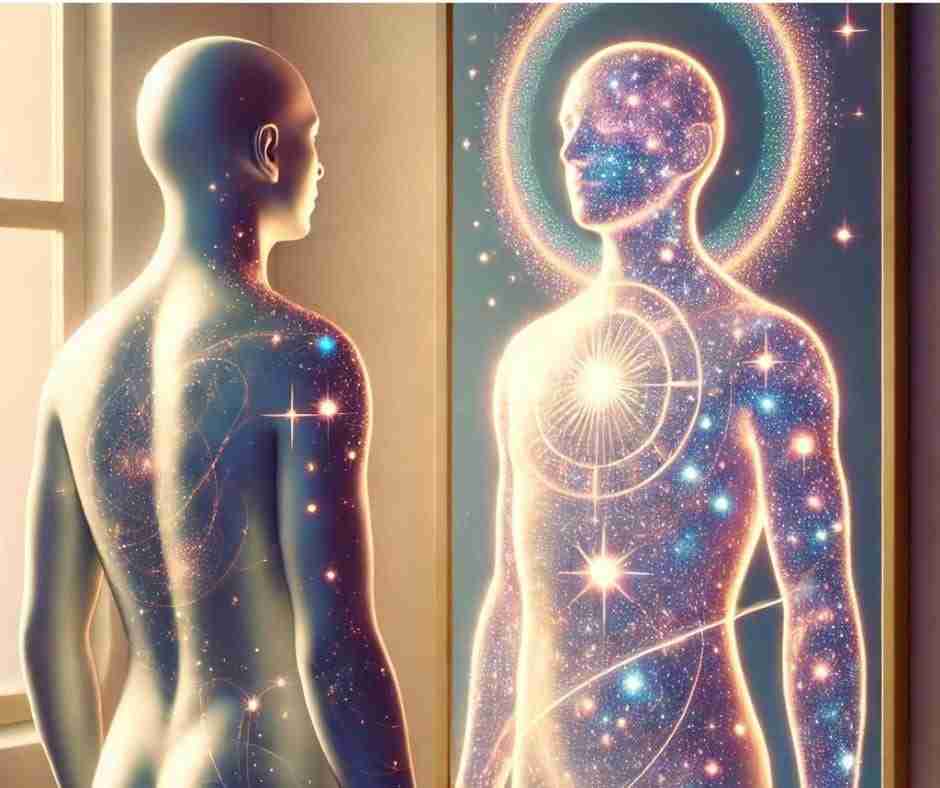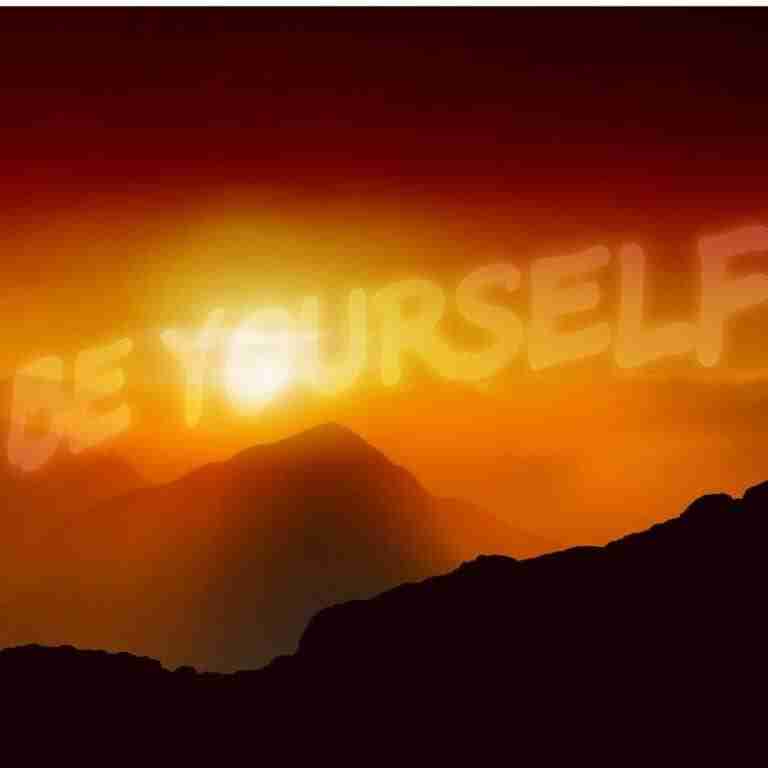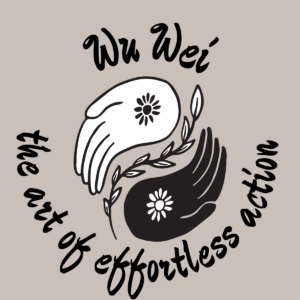To be true to yourself is the most wonderful gift you can receive and give. It is also the greatest act of bravery. In the quiet moments of your life, when the noise of the world fades and you are alone with yourself, do you feel that you’re soul is aligned with the path you’re walking?
In the sacred space within, where your deepest truths reside, there is an inner voice that whispers your essence—your purpose, your dreams, your authentic self.
Yet, as we journey through life, it is all too easy to become entangled in the webs of others’ expectations—those of family, friends, or the collective society. What happens when these external demands pull you away from the whispers of your soul, creating a dissonance between who you are and who you are expected to be?
The journey of being true to yourself is not just a matter of aligning with your desires; it is a spiritual act of honoring the divine essence within you.
Understanding Authenticity

Authenticity is often touted as a virtue, but what does it actually mean?
At its core, being authentic means living in a way that is consistent with your inner self—your thoughts, feelings, values, and beliefs. It’s about stripping away the armor we wear to fit in or to meet others’ expectations, and instead revealing our plain, true selves.
But how do you know if you’re being authentic? It’s that feeling of alignment, when your words and actions reflect your inner truth without compromise.
Authenticity isn’t about being perfect; it’s about being real, even when it’s uncomfortable. Have you ever felt the strain of pretending to be someone you’re not? Consider how much more fulfilling life could be if you allowed yourself to be genuinely, unapologetically you.
Be True to Yourself Because It’s Your Dharma

The concept of being true to oneself is not confined to any one culture or philosophy; it is a universal theme that has been explored in various ways across the world. In many Eastern philosophies, the idea of “Dharma” refers to living in accordance with one’s true nature and purpose.
It’s about aligning your actions with your inner truth, rather than following a path dictated by external forces, in order to have a meaningful life.
In Western thought, existentialist philosophers like Jean-Paul Sartre have emphasized the importance of living authentically as a way to find meaning in life. Sartre argued that we are responsible for creating our own essence through our choices and actions.
By exploring these different perspectives, and considering how cultural background can influence our understanding of authenticity, we can gain a richer, more nuanced understanding of what it means to be true to oneself.
How To Be True to Yourself and Live a Life of Self-Discovery
Self-discovery is an ongoing journey that evolves as you grow and experience life. It’s about understanding your own identity, values, and desires—things that often get buried under all the conditioning we receive from people and society in our young life.
This journey requires introspection, honesty, and a willingness to face the parts of yourself that you might have neglected or ignored.
Have you ever taken the time to really ask yourself, “What do I truly want?” A journey of self-discovery might not always be straightforward, and it often involves questioning long-held beliefs and societal norms. But the reward is a deeper connection with your true self, which is essential for living an authentic life.
How can you embark on this journey? Start by asking yourself what truly makes you happy and what you value most. The answers might surprise you.
The Influence of Society and Expectations

Society has a powerful influence on our lives, often dictating what is considered “normal” or “successful.” From a young age, we are conditioned to meet certain standards and experience peer pressure to fit in, something that often continues well into adulthood.
But what happens when these societal expectations don’t align with who we truly are?
Have you ever felt the pressure to conform to other people’s expectations, even when it meant sacrificing your own happiness?
The truth is, societal norms can sometimes lead us away from our authentic selves, pushing us to live in ways that don’t resonate with our inner desires and values. It’s important to recognize these pressures and question whether they truly serve your well-being.
What if you chose to define success on your own terms, rather than adhering to someone else’s definition? Consider how liberating it would be to live a life that reflects your own values and desires, rather than those imposed by society.
If you are always trying to be normal, you will never know how amazing you can be.— Maya Angelou.
Overcoming Fear and Embracing Vulnerability
One of the biggest obstacles to being true to ourselves is fear—the fear of being judged, rejected, or misunderstood. It’s natural to want to be accepted by others, but when that desire for acceptance leads us to compromise who we are, it can leave us feeling empty and disconnected.
Have you ever held back your true thoughts or feelings out of fear of what others might think? Embracing vulnerability is key to overcoming this fear. When you allow yourself to be vulnerable, you open up to deeper connections and a greater understanding of yourself.
Vulnerability isn’t a weakness; it’s a strength that comes from being honest and open, even when it’s difficult. What would happen if you let go of the fear of judgment and allowed yourself to be seen for who you truly are? The result might be more meaningful relationships and a stronger sense of self.
Practical Tips to Help You Be True To Yourself
Cultivating authenticity in order to be true to yourself is a practice that requires intention and consistency. It’s about making daily choices that align with who you truly are.
To be yourself in a world that is constantly trying to make you something else is the greatest accomplishment.— Ralph Waldo Emerson.
Start by regularly engaging in self-reflection. Take time to check in with yourself—what are your wishes and values? How can you honor those today? In addition to self-reflection, there a many other practical steps you can take to help you be true to yourself. They include:
Mindfulness: Practice mindfulness to stay present and connected to your inner self. This helps you make decisions that align with your true nature.
Set Boundaries: Learn to say no to things that don’t resonate with you. Setting boundaries is essential for maintaining your authenticity.
Practice Self-Compassion: Be kind to yourself. Authenticity doesn’t mean perfection; it’s about embracing who you are, flaws and all, so practice self-acceptance daily.
The Role of Mindfulness and Self-Reflection

Mindfulness and self-reflection go hand in hand when it comes to living authentically. Mindfulness helps you stay grounded in the present moment, allowing you to observe your thoughts and feelings without judgment.
Have you ever caught yourself reacting to a situation in a way that doesn’t align with your true self? Mindfulness gives you the space to pause and make choices that are in harmony with who you are.
Self-reflection, on the other hand, allows you to delve deeper into your inner world. It’s a process of examining your beliefs, values, and desires and assessing whether your actions align with them.
Through regular self-reflection, you can identify areas where you might be compromising your authenticity and make the necessary adjustments.
The Impact of Authenticity on Personal Growth

When you live authentically, you create the conditions for profound well-being and personal growth. Authenticity allows you to pursue your passions, explore your potential, and make choices that reflect your true self. This alignment leads to a sense of fulfillment and purpose.
In turn, living with a sense of purpose is proven to increase happiness and improve mental health.
Have you ever experienced a moment when you felt completely in sync with yourself, where everything just seemed to flow? That’s the power of authenticity. As you become more authentic, you develop greater self-respect, resilience, and emotional intelligence.
These qualities not only enhance your personal life but also positively impact your professional and social relationships.
A Seed in Fertile Soil
Living authentically is like planting a seed in fertile soil—it’s the beginning of a journey toward profound personal growth. When you choose to honor your true self, you set in motion a chain of events that opens up new possibilities for your life.
Authenticity isn’t just about being honest with others; it’s about being honest with yourself, recognizing your desires, strengths, and even your weaknesses. This honesty fosters a deeper understanding of who you are, which in turn allows you to pursue your passions with clarity and purpose.
When you live in alignment with your true self, you begin to notice a shift in how you approach life’s challenges. Instead of being overwhelmed by external pressures or the expectations of others, you start to make decisions that are in harmony with your core values.
This alignment is where true fulfillment resides. It’s a place where your actions and choices reflect your deepest beliefs, leading to a life that feels both meaningful and purposeful.
Greater Self-Esteem
Moreover, authenticity fosters personal growth by helping you build greater self-confidence. When you know who you are and what you stand for, you become more secure in your decisions and less swayed by the opinions of others.
This positive self-image is a powerful tool in navigating both personal and professional spheres. It empowers you to take risks, explore new opportunities, and even fail with grace, knowing that each experience brings you closer to understanding your true self.
As you continue to live authentically, you also develop resilience.
Life is full of ups and downs, but when you are grounded in your true self, you are better equipped to handle adversity.
Resilience is an inner strength, a mental fortitude that allows you to bounce back from setbacks and continue pursuing your goals with renewed vigor.
Self-Awareness and Emotional Intelligence
Another significant impact of authenticity on personal growth is the development of self-awareness and emotional intelligence.
When you are true to yourself, you become more attuned to your emotions and how they influence your behavior.
This awareness helps you navigate life with greater understanding, empathy, ad compassion for yourself and others.
You also become more capable of managing your emotions and recognizing their transient nature when you live in a state of being true to yourself. You’re capable of responding to the needs of others and maintaining healthy, authentic connections with those around you.
Be True To Yourself In Order to Have the Most Fulfilling Relationships
Life is all about relationships, and living authentically enriches all your relationships. When you present yourself genuinely, you attract people who resonate with your true self, leading to more meaningful and supportive connections.
In a professional context, authenticity can set you apart as a leader who is both trustworthy and inspiring. It encourages collaboration, innovation, and a work environment where individuals feel valued for who they are, not just what they can do.
As you can see, the impact of authenticity on personal growth is transformative. It creates a ripple effect that touches every aspect of your life, from your inner world to your external experiences, and helps you foster positive relationships and interactions with everyone you meet.
How to Be True to Yourself in Relationships
Relationships are an integral part of our lives, but maintaining authenticity in them can sometimes be challenging. It’s natural to want to please others or avoid conflict, but when you compromise your authenticity in relationships, it can lead to resentment and a loss of self.
Authentic relationships are built on honesty, respect, and mutual understanding. They allow you to be your true self without fear of judgment or rejection. This doesn’t mean that conflicts won’t arise, but when they do, they can be addressed openly and with integrity.
To navigate relationships and still be true to yourself, it’s important to communicate your needs and boundaries clearly. What relationships in your life might benefit from more authenticity and openness? Remember, the right people will appreciate and respect you for who you are.
Making the World a More Authentic Place
Deciding to live in alignment with your inner truth is one of life’s most profound decisions. This journey toward authenticity is not just a personal choice.
It is a spiritual commitment to honor the essence of who you are. It is about recognizing that your uniqueness is not something to be hidden or altered but rather a sacred gift that deserves to be expressed fully in every facet of your life.
In choosing authenticity, you are not just creating a life that is more aligned with your inner truth; you are also contributing to a more authentic world. When we all live in accordance with our true selves, we create a collective environment where diversity is celebrated, where differences are seen as strengths, and where everyone is encouraged to contribute their unique gifts to the tapestry of life.
The path of authenticity is often fraught with challenges. There will be moments when you feel isolated, misunderstood, or even judged for being different. However, it is precisely in these moments of vulnerability that your true strength lies.
By embracing who you are, flaws and all, you develop a resilience that allows you to navigate life’s uncertainties with grace and confidence.
You learn to trust yourself, listen to your intuition’s quiet voice, and act in ways that honor your deepest values.
Enjoy the Journey

Living authentically also means accepting that growth is an ongoing process. As you evolve, so too will your understanding of what it means to be true to yourself. This journey requires continuous self-reflection and a willingness to adapt and change as you discover new facets of your identity.
It is a path that demands courage, but it is also one that offers unparalleled rewards. The fulfillment that comes from living in harmony with your true self is profound, and it is a reward that cannot be measured by external success or validation.
As you continue on your journey, remember that being true to yourself is a lifelong commitment. It is a practice that will evolve with you, offering new insights and opportunities for growth at every turn. Embrace the challenges, celebrate the victories, and above all, honor the sacredness of your journey.
The more you live authentically, the more you will discover the boundless potential within you, and the more you will inspire others to do the same.
Your authentic self is your greatest asset—nurture it, cherish it, and let it guide you toward a life of profound meaning and purpose.





























0 Comments